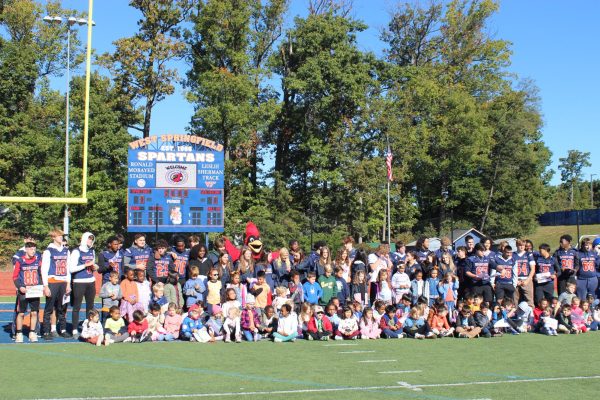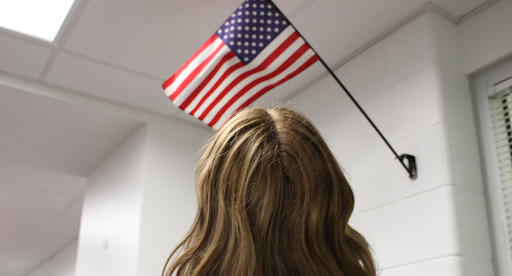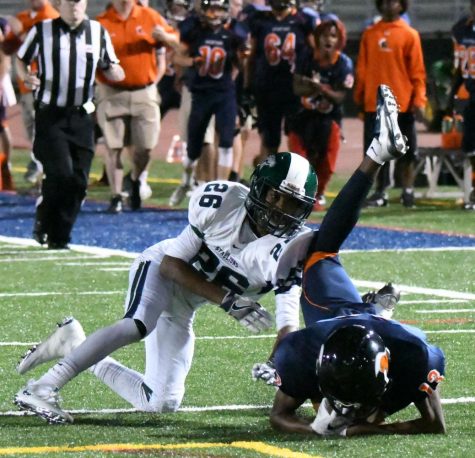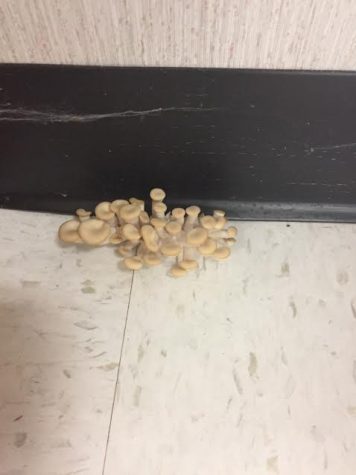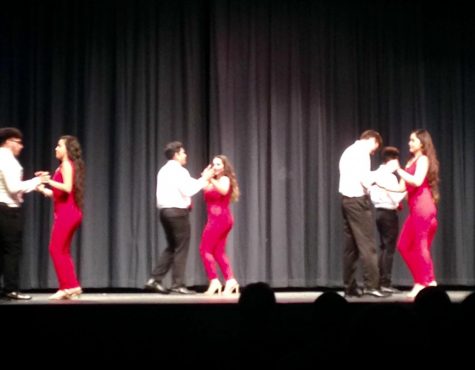The school district that thought it could
Any high school student knows that no one can be expected to get every question right on every test. But for FCPS, one wrong answer can have disastrous consequences.
With temperatures below freezing and snow in the forecast, Spartans woke up on the morning of Tuesday, January 6 more than a little surprised to see that school was still starting on time. And as the snow starting coming in heavier than expected, it quickly became apparent that there had been a serious error of judgment.
Car crashes across the county created massive delays that caused students and teachers alike to arrive late in droves. By 7:40, the line at the attendance office was so long the administration decided to not even count 1st period tardies, instead sending kids straight to class.
But people who had arrived by 7:40 were, in hindsight ,the lucky ones. Chemistry teacher Sharon Phillips spent about two-and-a-half hours driving to school, arriving well into 3rd period.
“I met with a lot of crashes on the side of the road,” said Phillips. “It was dicey, no doubt.”
A sub stood in for her classes and ultimately little instruction time was missed but the experience of getting to school was a mix of frustration and danger for Phillips and many other members of the Spartan community.
But for all the difficulty Phillips encountered on the road, she ended up better off than the Spartans who didn’t even make it to school at all. Senior Andrew Lopez skidded onto a curb while braving the treacherous roads, leaving his front axle completely broken.
“I had to wait three hours for Triple A in the frigid cold, so I couldn’t go to school,” said Lopez.
But one of the biggest stories at WS that Tuesday was one of heroic efforts in the face of a deceptively dangerous several inches of snow. Teachers with free periods filled in for ones who were trapped on the road and most students figured out how to get to school one way or another.
“Let’s be honest, we should have been closed,” said math teacher Terri Stirk. “But I will say, at least for my kids, they made a valiant effort.”
Stirk only had 13 students in her 1st period Calculus class but she did manage to get some teaching in. FCPS ultimately issued an apology and decided not to count attendance for the day. The apology, however, didn’t leave many students convinced and both teachers and students were left confused why they’d decided to have school in the first place.
“It was a horrible, horrible day,” said Stirk. “I was surprised when they said we were starting on time, because I didn’t think it was a hard call to at least have a delay.”
But at 3 a.m. in the office of Assistant Superintendent Jeffrey Platenberg, as he contemplated whether or not to start normally, the situation didn’t seem to favor a delay or cancellation quite so clearly. The National Weather Service briefing he received only forecasted a light dusting up to an inch in Fairfax County.
“The thought was, if we’re only going to get a dusting and it’s just barely coming down now, the high schoolers are all in and starting by 7:20, let’s go ahead with the regular day… so that everybody will be in school and safe while the worst part of the storm will come through,” said Platenberg.
But few students would have described their situation that morning as safe, and as the situation deteriorated, they took to Twitter to voice their discontent, using the hashtag “#CloseFCPS” to tweet pictures of crashed cars, stalled buses and poorly-Photoshopped pictures of School Board member Ryan McElveen. The tweets received some media attention, making their way onto Buzzfeed and 17 Magazine’s online edition. In fact, #CloseFCPS trended nation- and worldwide for a time that morning.
When school was delayed the next day and cancelled on Thursday and again the following Wednesday, many tweeters took it as a sign that their voices had been heard. Unfortunately, this is a misconception. Although Platenberg does pay attention to feedback via emails and phone calls, he doesn’t go on Twitter, and didn’t read any of the #CloseFCPS tweets.
“I don’t follow social media, so that doesn’t influence my decision,” said Platenberg.
He admires students for their online activism but he doesn’t consider Twitter a reliable source of information in the cancellation process.
While few people were pleased with the situation that Tuesday, some were a little sympathetic toward Platenberg.
“Those are rough calls for someone to be making at 4 in the morning,” said Phillips.


